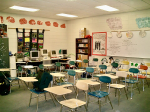Media
-
 Axel Springer backs Dovid Efune’s £500m Telegraph Bid, taking on Daily Mail owner DMGT
German media giant Axel Springer has thrown its weight behind a rival bid for Britain’s Telegraph Media Group, backing a £500 million offer led by U.S. publisher21 February 2026Read More...
Axel Springer backs Dovid Efune’s £500m Telegraph Bid, taking on Daily Mail owner DMGT
German media giant Axel Springer has thrown its weight behind a rival bid for Britain’s Telegraph Media Group, backing a £500 million offer led by U.S. publisher21 February 2026Read More... -
 UK leads global fight against deepfakes with science-driven detection standards
Deepfakes—AI-generated videos, images and audio—are no longer a fringe curiosity. They are a fast-growing threat across the UK, exploited by criminals to scam victims out of money,19 February 2026Read More...
UK leads global fight against deepfakes with science-driven detection standards
Deepfakes—AI-generated videos, images and audio—are no longer a fringe curiosity. They are a fast-growing threat across the UK, exploited by criminals to scam victims out of money,19 February 2026Read More... -
 Former Daily Mail editor Paul Dacre tells UK court he is “angry and upset” over Prince Harry privacy claims
Paul Dacre, the long-serving former editor of the Daily Mail and one of the most influential figures in British journalism, told the High Court in London that he felt11 February 2026Read More...
Former Daily Mail editor Paul Dacre tells UK court he is “angry and upset” over Prince Harry privacy claims
Paul Dacre, the long-serving former editor of the Daily Mail and one of the most influential figures in British journalism, told the High Court in London that he felt11 February 2026Read More... -
 BBC TV licence fee to rise to £180 from April, sparking anger as costs overtake streaming rivals
The annual TV licence fee will rise by £5.50 to £180 from April 1, dealing another blow to household budgets already stretched by the cost-of-living crisis.06 February 2026Read More...
BBC TV licence fee to rise to £180 from April, sparking anger as costs overtake streaming rivals
The annual TV licence fee will rise by £5.50 to £180 from April 1, dealing another blow to household budgets already stretched by the cost-of-living crisis.06 February 2026Read More... -
 Elton John’s husband David Furnish accuses Daily Mail of homophobia and privacy violations in High Court trial
David Furnish, the husband of British music icon Elton John, has accused the publisher of the Daily Mail of unlawfully obtaining private information about their06 February 2026Read More...
Elton John’s husband David Furnish accuses Daily Mail of homophobia and privacy violations in High Court trial
David Furnish, the husband of British music icon Elton John, has accused the publisher of the Daily Mail of unlawfully obtaining private information about their06 February 2026Read More...

Culture
-
 UK music exports get £1.4m boost as 68 independent artists win global growth grants
Rising British music talent is set for a global push after 68 independent UK acts secured a combined £1.4 million in government-backed funding designed to grow international audiences, boostRead More...
UK music exports get £1.4m boost as 68 independent artists win global growth grants
Rising British music talent is set for a global push after 68 independent UK acts secured a combined £1.4 million in government-backed funding designed to grow international audiences, boostRead More... -
 Emery Walker revealed: new exhibition explores the man behind the arts and crafts legend
A new exhibition opening this spring at Emery Walker’s House sets out to restore depth, warmth, and personality to one of Britain’s most influential yetRead More...
Emery Walker revealed: new exhibition explores the man behind the arts and crafts legend
A new exhibition opening this spring at Emery Walker’s House sets out to restore depth, warmth, and personality to one of Britain’s most influential yetRead More... -
 London confirms St Patrick’s Day 2026 parade and Trafalgar Square festival
London will turn green once again next spring after the Mayor confirmed the capital’s St Patrick’s Day celebrations will take place on Sunday 15 March 2026, with aRead More...
London confirms St Patrick’s Day 2026 parade and Trafalgar Square festival
London will turn green once again next spring after the Mayor confirmed the capital’s St Patrick’s Day celebrations will take place on Sunday 15 March 2026, with aRead More... -
 Masterpieces beyond the Museum: National Gallery brings life-size art to communities ccross the UK
World-famous paintings from the National Gallery are stepping out of Trafalgar Square and into everyday life, as part of a major touring project that will seeRead More...
Masterpieces beyond the Museum: National Gallery brings life-size art to communities ccross the UK
World-famous paintings from the National Gallery are stepping out of Trafalgar Square and into everyday life, as part of a major touring project that will seeRead More... -
 Award-winning Polish writer Mariusz Szczygieł brings ‘Not There’ essay collection on UK tour
Polish writer Mariusz Szczygieł, one of Central Europe’s most acclaimed literary reporters, will tour the UK later this month with a series of public events marking the English-language release...Read More...
Award-winning Polish writer Mariusz Szczygieł brings ‘Not There’ essay collection on UK tour
Polish writer Mariusz Szczygieł, one of Central Europe’s most acclaimed literary reporters, will tour the UK later this month with a series of public events marking the English-language release...Read More... -
 Professor Dame Carol Black GBE reappointed as Chair of the British Library for 2026–2027
The UK Secretary of State has confirmed the extension of Professor Dame Carol Black GBE as Chair of the British Library, continuing her leadership from 1 September 2026 to 31 August 2027.Read More...
Professor Dame Carol Black GBE reappointed as Chair of the British Library for 2026–2027
The UK Secretary of State has confirmed the extension of Professor Dame Carol Black GBE as Chair of the British Library, continuing her leadership from 1 September 2026 to 31 August 2027.Read More... -
 Climate, community and care: Soma Surovi Jannat’s landmark exhibition at the Ashmolean Museum
From spring through autumn 2026, the Ashmolean Museum presents 'Soma Surovi Jannat: Climate Culture Care', a powerful new exhibition that places climateRead More...
Climate, community and care: Soma Surovi Jannat’s landmark exhibition at the Ashmolean Museum
From spring through autumn 2026, the Ashmolean Museum presents 'Soma Surovi Jannat: Climate Culture Care', a powerful new exhibition that places climateRead More... -
 Londoners on trial: 700 years of crime revealed in a free City archives exhibition
From medieval pickpockets to notorious Victorian figures, seven centuries of crime, punishment and public fascination are laid bare in a new exhibition atRead More...
Londoners on trial: 700 years of crime revealed in a free City archives exhibition
From medieval pickpockets to notorious Victorian figures, seven centuries of crime, punishment and public fascination are laid bare in a new exhibition atRead More... -
 Lost for centuries, Henry VIII’s golden love pendant finds a home at the British Museum
A golden heart pendant once symbolizing the doomed marriage of Henry VIII and Katherine of Aragon has finally been secured for permanent display at the BritishRead More...
Lost for centuries, Henry VIII’s golden love pendant finds a home at the British Museum
A golden heart pendant once symbolizing the doomed marriage of Henry VIII and Katherine of Aragon has finally been secured for permanent display at the BritishRead More... -
 British High Commission hosts Caledonian Ball in Lahore to celebrate growing Scotland–Pakistan partnership
The British High Commission brought a touch of Scotland to Lahore this week as it hosted the Caledonian Ball at the historic Sir Ganga Ram Residence, celebratingRead More...
British High Commission hosts Caledonian Ball in Lahore to celebrate growing Scotland–Pakistan partnership
The British High Commission brought a touch of Scotland to Lahore this week as it hosted the Caledonian Ball at the historic Sir Ganga Ram Residence, celebratingRead More... -
 300-year-old Rysbrack Marble putti blocked from export as UK scrambles to save national treasure
A three-century-old marble sculpture by renowned eighteenth-century sculptor Michael Rysbrack has been placed under a temporary UK export ban, giving BritishRead More...
300-year-old Rysbrack Marble putti blocked from export as UK scrambles to save national treasure
A three-century-old marble sculpture by renowned eighteenth-century sculptor Michael Rysbrack has been placed under a temporary UK export ban, giving BritishRead More... -
 Inside ICG PR: how an international PR agency shapes reputation for luxury, fashion, and cultural brands
Interview: the co-founder of Iris Consulting Group Iryna Kotlyarevska on building global visibility with cultural intelligenceRead More...
Inside ICG PR: how an international PR agency shapes reputation for luxury, fashion, and cultural brands
Interview: the co-founder of Iris Consulting Group Iryna Kotlyarevska on building global visibility with cultural intelligenceRead More...

British Queen celebrates
Most Read
- Teen held after US woman killed in London stabbings
- Heave-ho Harry! Prince prepares to join the walking wounded in ice trek to North Pole
- Football: Farhad Moshiri adamant Everton deal above board
- "Master of English Style". Interview with Designer Lydia Dart
- Letter to the Financial Times from Lord Mayor Alderman Michael Bear
Education

In the latest QS World University Rankings, two prestigious London universities have been recognized among the top ten in the world. Imperial College secured the sixth position, while

Oxford University students were seen making their way home this morning after attending the highly anticipated Commemoration Ball at Magdalen College. Dressed in elegant ball gowns and

Thousands of schoolchildren will learn more about the British nuclear testing programme thanks to a £70,000 grant from the Office for Veterans’ Affairs (OVA). Another £34,000 grant will bring

Oxford University held its prestigious Encaenia ceremony on Wednesday, June 21, 2023, granting honorary degrees to eight exceptional individuals. Among the esteemed recipients were

Claims of collaboration between UK universities and Iranian researchers on projects with potential military applications are currently under investigation, according to the Prime Minister.

The University of Oxford's Pandemic Sciences Institute has not received the £150 million in funding pledged by former Prime Minister Boris Johnson, according to its director.

Ofsted has today published a report exploring early years provision in an international context.

Free NHS sight tests will be made available within all special school settings, the government and NHS England confirmed today.

Scott Morrison, the former Prime Minister of Australia, has been invited to deliver a keynote address at the prestigious Oxford Union on Thursday, June 15th, at 5 pm. Following his talk,

Teachers in England represented by the National Education Union (NEU) are set to initiate new strikes next month as part of their ongoing pay dispute.




















